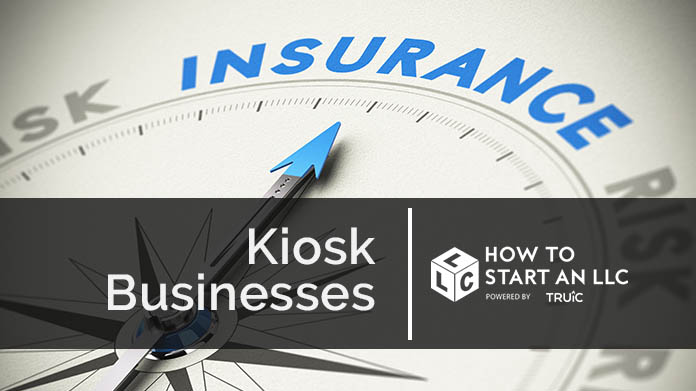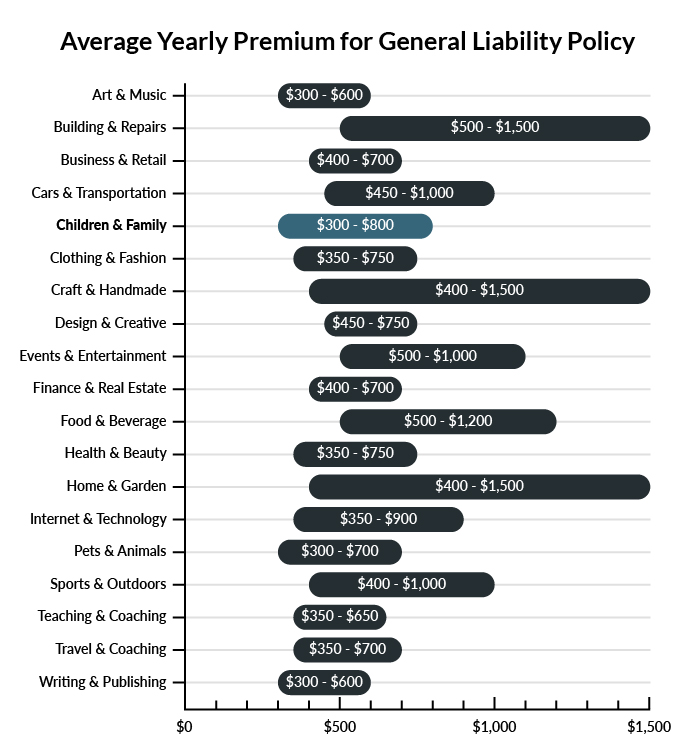Kiosk Business Insurance
Getting insurance for your kiosk business is essential.
Kiosk businesses need to be protected against things like claims of false advertising, breach of contract, and personal injury.
For example, your kiosk makes misleading claims about the benefits of its products, or a customer hurts themselves after using one of your products.
We’ll help you find the most personalized and affordable coverage for your unique business.

Recommended: Ergo Next Insurance is dedicated to matching small businesses with the right policy at the best price.
Best Insurance for a Kiosk Business
General liability insurance is — generally speaking — one of the most important insurance policies for kiosk businesses.
Some of the risks general liability insurance covers are:
- Bodily injury
- Property damage
- Medical payments
- Legal defense and judgment
- Personal and advertising injury
Some other insurance policies that may be useful to your kiosk business alongside general liability include:
- Product liability insurance: This protects against the possibility of being sued for harm caused to a customer by one of your products.
- Commercial property insurance: This policy safeguards the investment into your kiosk’s stock and inventory in case a loss occurs.
- Business interruption insurance: Provides compensation for lost income as well as fixed expenses during periods of forced closure.
Coverage for your kiosk business can generally be purchased from two key types of insurance providers:
- Traditional brick-and-mortar insurers — Includes options like Nationwide, The Hartford, and Hiscox.
- Online insurers — Includes options like Tivly and Ergo Next.
Businesses are typically shifting towards online insurers in favor of traditional ones because they offer similarly accurate and personalized insurance at a far more affordable price.
Let’s Find the Coverage You Need
The best insurers design exactly the coverage you need at the most affordable price.
Cost of General Liability Insurance
On average, kiosk businesses in America spend between $300 – $800 per year for $1 million in general liability coverage.
Compare the average cost of general liability insurance for a kiosk business to other professional industries using the graph below.
Several factors will determine the price of your policy. These include your:
- Location
- Deductible
- Number of employees
- Per-occurrence limit
- General aggregate limit
You may be able to acquire general liability insurance at a discounted rate by purchasing it as part of a business owner’s policy (BOP) rather than as a standalone policy.
A BOP is a more comprehensive solution that includes multiple forms of coverage, such as business interruption and property insurance.

Find the Best Rate
Discover the best coverage at the lowest rate in our affordable business insurance review.
Common Situations That General Liability Insurance May Cover for a Kiosk Business
Example 1: While a customer is looking at your merchandise, one of the new displays falls on him and his child. Both sustained minor injuries but are suing because of the incident. General liability insurance would pay for legal representation and other related costs, as well as damages awarded by the court.
Example 2: You are moving the kiosk to clean underneath it and cause a large gash in the mall’s tile floor. General liability insurance should pay to repair or replace the damaged floor.
Example 3: The mall you have applied to set up in requires evidence of liability insurance. A general liability policy should help you meet those requirements.
Other Types of Coverage Kiosk Businesses Need
While general liability is the most important type of insurance to have, there are several other forms of coverage you should be aware of. Below are some of the most common types of coverage:
Product Liability Insurance
Product liability insurance is important coverage for any business owner who manufactures, distributes, or sells merchandise. If a customer claims harm from a product you sell them, regardless of merit, they can sue you in a court of law. This policy will ensure your representation in court and pay damages awarded by the court.
This policy is generally sold as part of a business owner’s policy (BOP) and you can tailor it to the unique needs of your business.
Commercial Property Insurance
As a kiosk owner, you keep your business property, including inventory, on a non-business owned property at all times. While you would not be responsible for the repair of the property, it is up to you to insure your items should a loss occur.
Your insurance agent can assist you in determining which business owner’s policy (BOP) is appropriate for your business’ specific needs.
Business Interruption Insurance
Also known as business income and extra expense, this insurance provides fixed expenses and loss of income while a business works to recover after a major structural and/or equipment loss. It will help set the business up in a temporary location, provide coverage for associated extra expenses, and help supplement lost income during recovery time.
This insurance is generally offered as part of a business owners’ policy (BOP) package.
Workers Compensation Insurance
The state requires businesses to carry workers compensation insurance for employees. If an on-the-job injury or illness occurs, the policy covers the injured party’s medical expenses and a percentage of wages lost while out of work. If a lawsuit arises due to the injury, the policy should also cover the business owner’s legal fees and court-ordered damages.
Most insurance companies write workers compensation as a standalone policy.
Crime Insurance
Employee dishonesty, fraud, and forgery claims are all excluded on a standard business owner’s policy. Crime insurance provides coverage should a loss occur, reducing the chances of a gap in coverage.
Additional Steps To Protect Your Business
Although it’s easy (and essential) to invest in business insurance, it shouldn’t be your only defense.
Here are several things you can do to better protect your kiosk business:
- Use legally robust contracts and other business documents. (We offer free templates for some of the most common legal forms.)
- Set up an LLC or corporation to protect your personal assets. (Visit our step-by-step guides to learn how to form an LLC or corporation in your state.)
- Stay up to date with business licensing.
- Maintain your corporate veil.
Kiosk Business Insurance FAQ
Yes, absolutely. You will need to first get a quote from an online business insurance provider like Ergo Next Insurance. Ergo Next allows you to then purchase a policy immediately and your coverage will be active within 48 hours.
A typical business owner’s policy includes general liability, business interruption, and commercial property insurance. However, BOPs are often customizable, so your agent may recommend adding professional liability, commercial auto, or other types of coverage to your package depending on your company’s needs.
“Business insurance” is a generic term used to describe many different types of coverage a business may need. General liability insurance, on the other hand, is a specific type of coverage that business owners need to protect their assets.
Yes. Without business insurance beforehand, your kiosk business will be completely exposed to the financial impacts of the many risks associated with this industry.
In some cases, foregoing insurance may result in legal trouble for your kiosk business as it may be mandated by state law to hold specific policies (e.g., workers’ compensation insurance).
Not necessarily. Certain exceptions may be written directly into your kiosk business insurance policy, and some perils may be entirely uninsurable.
Yes, an LLC is meant to create a legal barrier between your business and your personal assets and credit. If you haven’t formed an LLC yet, use our Form an LLC guide to get started.
An LLC doesn’t protect your business assets from lawsuits and liability– that’s where business insurance comes in. Business insurance helps protect your business from liability and risk.